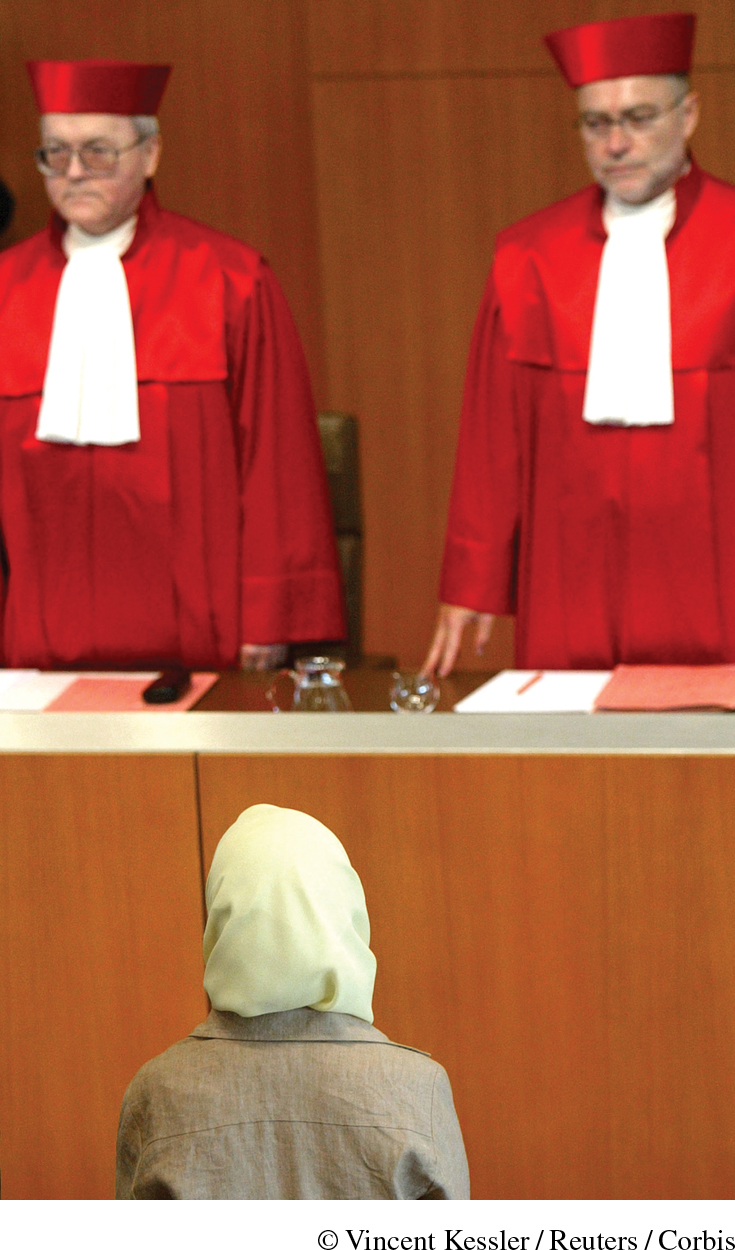Redefining the West: The Impact of Global Migration
Printed Page 996
Important EventsRedefining the West: The Impact of Global Migration
The global movement of people was massive in the last third of the twentieth century and into the twenty-first. Uneven economic development, political persecution, and warfare (which claimed more than 100 million victims after 1945) sent tens of millions in search of opportunity and safety. By 2010, France had between five and eight million Muslims within its borders, and Europe as a whole had between thirty-five and fifty million. Other parts of the world were as full of migrants as the West. The oil-producing nations of the Middle East employed millions of foreign workers, who generally constituted one-third of the labor force. The Iraq-Iran War and the U.S. invasion of Iraq in 2003 sent millions fleeing, while the rise of the radical Islamic State left 1.7 million more Iraqis homeless. After 2011, more than 2 million Syrians were registered as refugees from the civil war and Islamic State in adjacent nations, bringing the total number of migrants worldwide to more than 200 million in 2015, in part because of escalating conflicts across the Middle East.

Those migrating for work from countries as different as the Yugoslav republics, Egypt, Spain, Mexico, and Pakistan sent money home from abroad that constituted up to 60 percent of national income. Sometimes migration was coerced: many eastern European and Asian prostitutes were held in international sex rings that controlled their passports, wages, and lives. Others came to the West voluntarily, seeking opportunity and a better life: “I do not want to go back to China,” said one woman restaurant owner in Hungary in the 1990s. “Some of my relatives there also have restaurants . . . and sometimes they have to bribe somebody. . . . I would not be happy living like that.” Like the illegal Congolese café proprietor Thérèse, whose story opens this chapter, many lived on the margins of the law, maintaining global ties with families from a new base in the West.
Foreign workers were often scapegoats for native peoples suffering from economic woes such as unemployment caused by downsizing. On the eve of EU enlargement in 2004, the respected weekly magazine The Economist included an article entitled “The Coming Hordes,” which warned of Britain’s being overrun by Roma (Gypsies) from eastern Europe. The Moscow rock band Corroded Metals campaigned for anti-immigrant politicians with hate-filled songs and chants in English of “Kill, kill, kill, kill the bloody foreigners” running in the background. Even citizens of immigrant descent often had a difficult time being accepted. Thriving anti-immigrant and white supremacist politicians challenged centrist parties, and in Austria and the Netherlands, anti-immigration candidates were elected to head the government. Nonetheless, employers sought out illegal immigrants for the low wages they could be paid. (See “Contrasting Views: The Dutch Debate Globalization, Muslim Immigrants, and Turkey’s Admission to the EU.”)